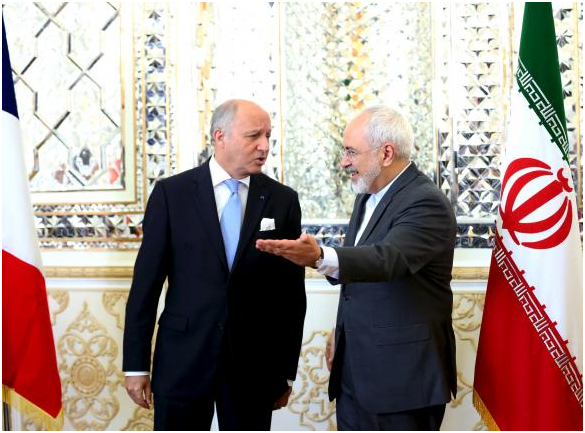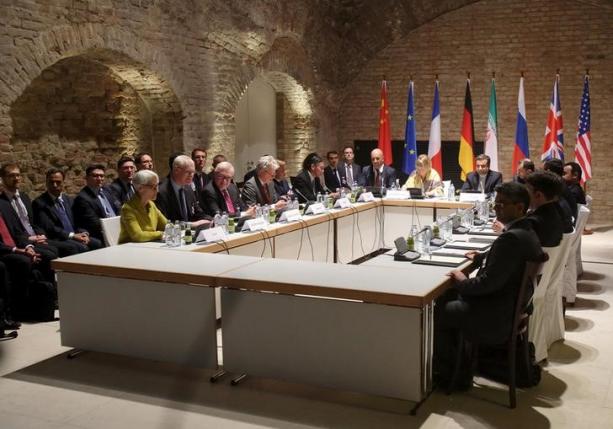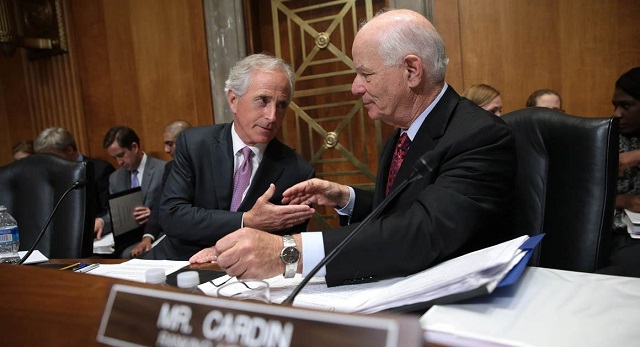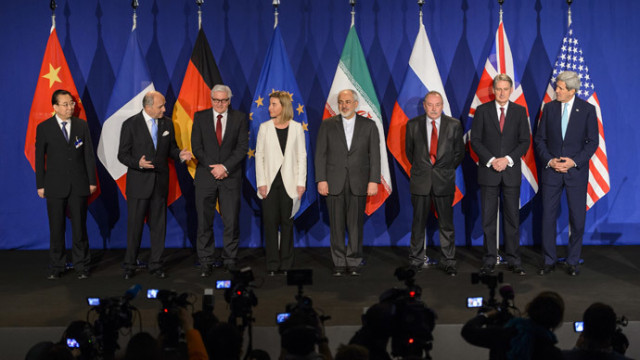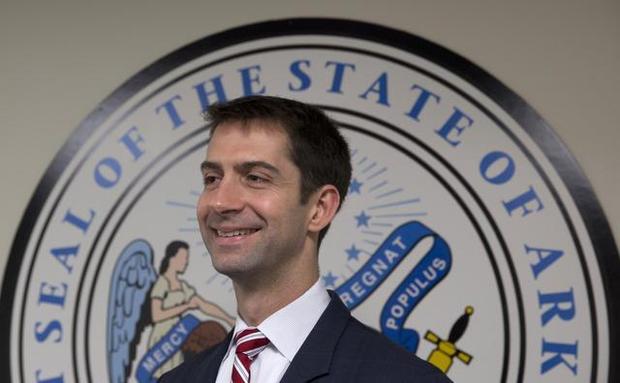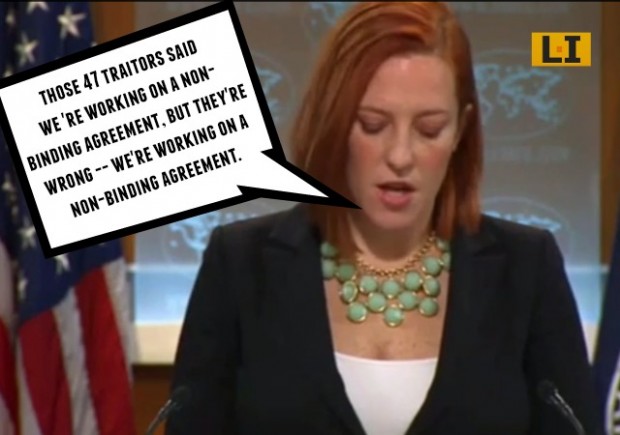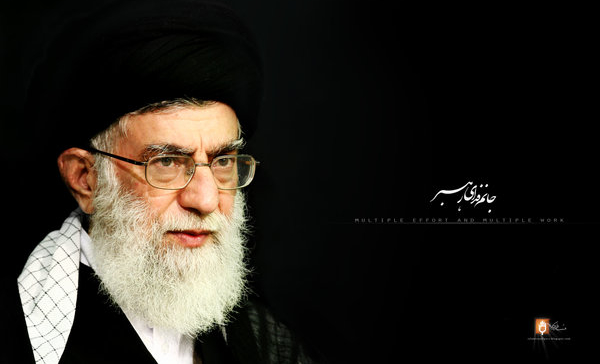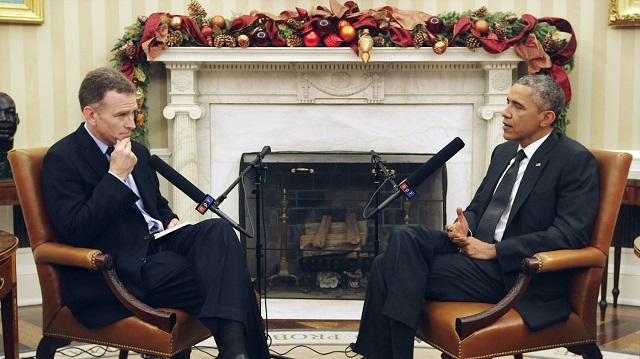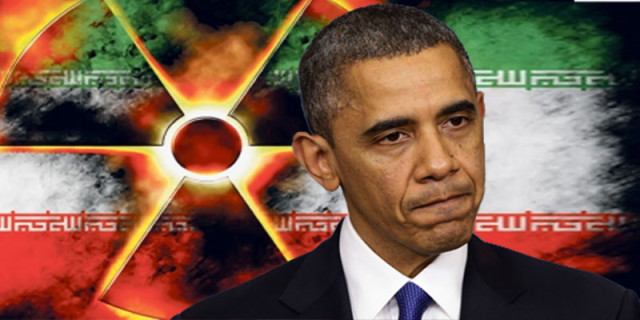Khamenei: U.S. is ‘left with no option but to withdraw from the region’ in changed ‘world order’ after Oct. 7
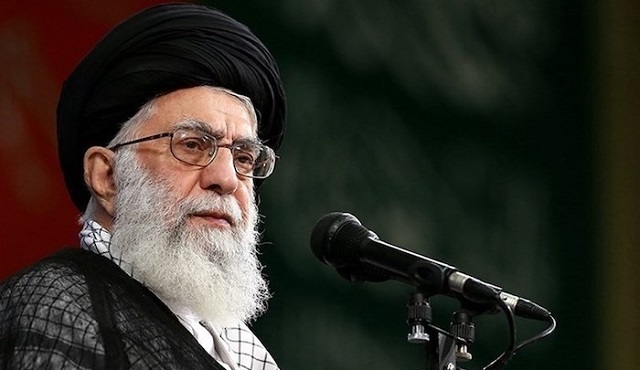
Many factors have combined recently to magnify the strength of Iran and its proxies — from Obama’s disastrous nuclear deal that only benefited Iran to the Islamic Republic’s current alliances with China and Russia, as well as its continuing to be underestimated and misunderstood by the West. The Iranian regime has been emboldened for years. The West’s tendency to ignore or discount this has given Iran an opportunity to become a key player in the global order, while America under Biden declines. As the Ayatollah Khamenei put it in a recent statement:
The United States’ long-standing ambition to dominate the region has been undermined by the resilience of the Axis of Resistance. The United States is now left with no option but to withdraw from the region.
A recent article in the Jerusalem Post discusses how the Middle East, and global politics, has changed since October 7. “Iran’s Khamanei [sic] using Gaza war as step to change world order,” by Seth J. Frantzman, Jerusalem Post, March 24, 2024:
Iran’s Supreme Leader believes the US is in decline in its influence in the Middle East. According to a statement last week, Ayatollah Ali Khamenei claimed that the current war against Israel, which Iran launched using proxies in the wake of the October 7 Hamas attack, has “disrupted” the US goals in the region.
The October 7 attack can be read as a turning point in the world order, in which Iran, Russia, Turkey, China, and others see the attack as a major shift that is taking place and seek to exploit it to achieve their goals.
Both the current weak administration governing America and the October 7 attacks have greatly contributed to a “turning point” in the world order.
Iran’s Islamic Revolutionary Guards Corps Quds Force Commander Esmail Qaani has also threatened that “that the resistance front has yet to exhibit the maximum of its capabilities in terms of military and deterrent power”. Qaani’s reference to the “resistance” includes Hamas, jihadists in “Gaza, the West Bank, Yemen, Lebanon, Iraq, Syria and other places.” Embedded in Qaani’s threat is that the West has seen nothing yet.
Khamenei believes that the US has lost all influence in the region, and that it “is now left with no option but to withdraw” altogether. With Joe Biden in the White House, Khamenei isn’t far off regarding America’s loss of influence. And as for withdrawing from the region, America isn’t adequately standing up for Israel nor even against its own enemies, so it has a weak presence.
The rising world powers increasingly appear to be Russia, China, and even possibly Iran — that is, America’s foremost enemies. Recently, Russia and China managed to broker a safe passage deal with the highly underestimated and Iran-supported Houthis, who now have the Red Sea under siege and have expanded their activities to begin interfering with ships that are heading to the Cape of Good Hope at Africa’s Southern tip. Biden’s Red Sea Coalition continues to struggle ineffectively against the Houthis, as the Yemen-based group has an adverse impact upon Western economic stability. Recently, Hamas and Houthi top dogs met to discuss “expanding their confrontations” with Israel.
Iran has also become a formidable presence within the powerful BRICS alliance (Brazil, Russia, India, China and South Africa), and its influence is growing. According to NASDAQ, discussions about the potential impact of a new BRICS currency are now going on, “with experts debating” this new currency’s “potential to challenge” the dominance of the American dollar. Should this happen, America’s decline would accelerate, since economic clout defines global influence and power. The American dollar is the world’s principal reserve currency for global trade. Simply put: its purchasing power is so influential that when when the American dollar appreciates, other world currencies depreciate. China is now trying to lessen global reliance on the American dollar, which would also be a major victory for Iran. Last year, China was Iran’s main trade partner. According to an Islamic Republic of Iran Customs Administration report in May, Iran’s trade with BRICS member states between March 21, 2022 and Feb. 19, 2023 was worth $34.98 billion USD, “which excludes crude oil exports.”
Iran’s growth has been rapid in BRICS. Last August, Vladimir Putin and Iranian President Ebrahim Raisi discussed Iran’s future membership in BRICS. A similar meeting took place in November; it included dignitaries from Iran and Russia, who discussed Iran’s “active role” in BRICS. Less than two months later, at the turn of the new year, Iran officially joined the China-led BRICS economic organization.
Whether or not America and the West have accepted the fact, America (deemed the “Great Satan” by Iran) and Israel (the “Little Satan”) are currently in a limited war with Iran, which is now likely in possession of nuclear bombs, and which has powerful friends.
The Jerusalem Post states that “the war in Gaza was the first shot by Iran and other countries in a major war for the future of the world order.” One can also see the increase in popularity of the pro-Hamas lobby, which is operating without restraint in America, Canada and other Western nations.
While enemies of America, Canada, Europe and Britain advance politically and economically, America and the West continue to decline under the irresponsible and weak leadership of globalist regimes, while being simultaneously invaded by multitudes of migrants, due to reckless open-door immigration polices. The globalist regimes has never indicated that they care about the fact that most of the migrants do not hold Western values.
Khamenei is correct in stating that “the United States’ long-standing ambition to dominate the region has been undermined by the resilience of the Axis of Resistance.” But whether America under Biden will fully abandon Israel and leave the region altogether, as Khamenei predicts, is another question. As stated earlier, America, in fact, is already increasingly useless to Israel as it issues threats against its traditional ally, while virtually exonerating Hamas’ use of human shields and Egypt’s blocking of Gazan refugees (except those refugees whom Egypt could bribe). The tight relationship between the Organization of Islamic Cooperation and the United Nations, not to mention the China-brokered rapprochement between Iran and Saudi Arabia, are no less sobering as indicators of the nature of the new world order that has begun emerging since October 7.
AUTHOR
RELATED ARTICLES:
Biden and Jake Sullivan Free With Advice to Israel: Don’t Invade Rafah
Netanyahu cancels advisers’ visit to DC after Biden regime allows UN ceasefire resolution to pass
The Egregious Kamala Harris Joins the Chorus of Disapproval Over Israel’s Plan to Enter Rafah
DEI Top Dogs Warn Intelligence Agencies Not to Use Terms Such as ‘Jihadist’
Putin Blames Everyone Except Islam for Islamic Terrorist Attack
State Department Official Claims IDF ‘Sexually Abuses Palestinian Women’ — Hamas Begs To Differ
Hamas and Al Jazeera admit that claims of IDF raping women in Gaza hospital were false
AOC accuses Israel of crossing ‘the threshold of intent’ of genocide
EDITORS NOTE: This Jihad Watch column is republished with permission. ©All rights reserved.

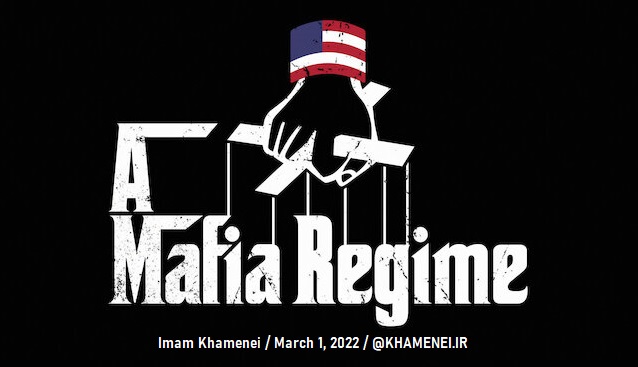

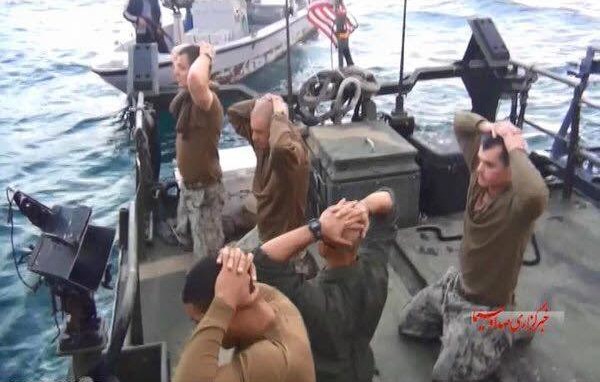 Yesterday, when we
Yesterday, when we 
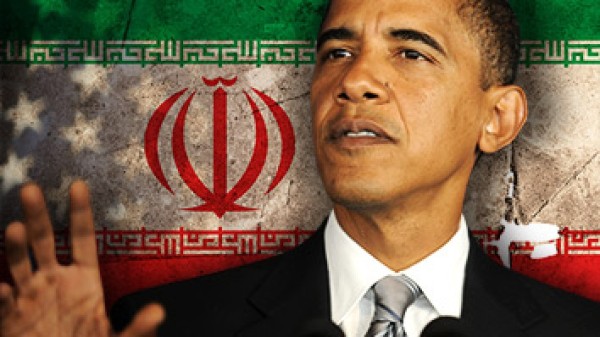
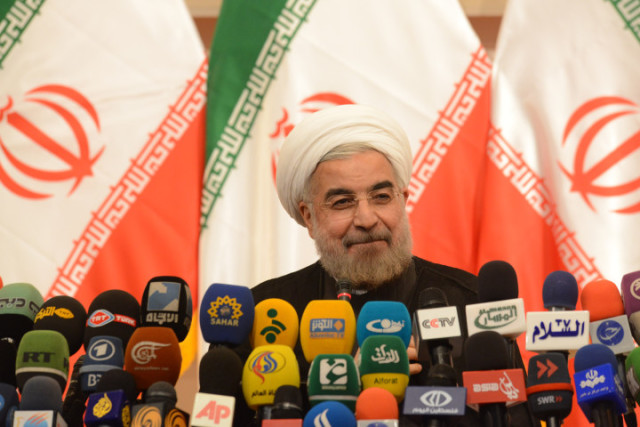
 In the current discussion of the Iran nuclear agreement with world powers and Germany, led by the United States, certain eerily familiar patterns emerge. There was a direct line from the appeasement by Britain and France that sacrificed Czechoslovakia to the onset of WWII and the horrors of the final solution for European Jewry that witnessed the murder of Six Million men, women and children in unspeakable ways. Hitler clearly had that in mind when during his table talk discussions with Albert Speer, his Munitions Minister, he referenced the Ottoman genocide of the 1.5 million Armenians during WWI, when he was alleged to have remarked, and “who hears any more of the Armenians”.
In the current discussion of the Iran nuclear agreement with world powers and Germany, led by the United States, certain eerily familiar patterns emerge. There was a direct line from the appeasement by Britain and France that sacrificed Czechoslovakia to the onset of WWII and the horrors of the final solution for European Jewry that witnessed the murder of Six Million men, women and children in unspeakable ways. Hitler clearly had that in mind when during his table talk discussions with Albert Speer, his Munitions Minister, he referenced the Ottoman genocide of the 1.5 million Armenians during WWI, when he was alleged to have remarked, and “who hears any more of the Armenians”. From
From 